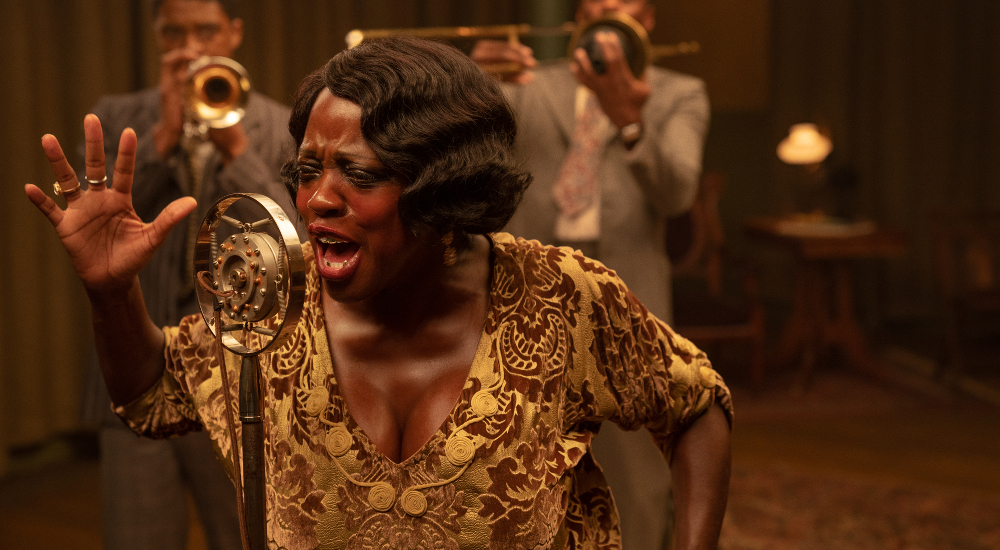“They don’t care nothing about me. All they want is my voice.”
Chicago, 1927. Set amidst a heatwave in the heart of the big city, George C. Wolfe’s Ma Rainey’s Black Bottom is a simple film that, once uprooted, grows exponentially in complexity. At first glance, the story appears to settle around Ma Rainey and the tensions that arise during a recording session; behind the apparent prevails an intense and unapologetic look at the large scale Black experience.
In what is quickly becoming standard practice, Viola Davis dominates the screen, physically transforming herself and giving a profound performance as Ma Rainey, the original “Mother of the Blues.” Her temperament, mannerisms, and tone are right on cue, bringing forth a confident, coarse woman who understands her value and refuses to squander her worth. This marks Davis’ second standout performance in an August Wilson adapted film following her 2018 Academy Award-winning turn opposite Denzel Washington in Fences.
Opposite Davis here is Chadwick Boseman in what is now known as his final performance. Though his legacy will forever stem beyond this project, it is worth noting that his turn as Levee is one of his finest. An actor who was still fine-tuning his craft, he holds his own against Davis’ epic performance, successfully offering a countering personality to the larger-than-life blues singer.
A trumpet player who appears to think he knows better, Levee longs to stake his own claim in the music industry. Refusing to back down as he awaits Ma’s arrival in the claustrophobic rehearsal room, he riles up his bandmates as they dive into a series of stories that expose them all and forever change the trajectory of their futures.
The space, heavily confined from the onset, proves to be the film’s most struggling factor. Painfully reading like a stage production, with Bosman often appearing to perform to the pupils in the back row balcony, Ma Rainey’s Black Bottom struggles to transfer mediums. A somber reminder of the sluggish and misguided 2005 Mel Brooks adaption of The Producers, this film works hard to preserve the theater experience in an environmental shift that should have freed the creators of the typical time, space, and context restrictions.
It is no surprise that the film survives and thrives on its performances. A small cast of characters keeps the overall experience intimate, mandating that each delivers given the confined structure. The dialogue is quick-paced, providing the film a slightly rushed feeling, another mechanism that often works well on stage but rarely translates to the screen.
It’s a shame, given the level of the source material. But Ma Rainey’s Black Bottom fails to deliver, thus crafting a film that will be remembered by many for its association with outside events but hardly appreciated by most for what it truly desires: storytelling. A rightful standing ovation for the entire cast, especially Davis; however, much like everyone else, I can only assume that she wants and expects more from the final product.
*This film is streaming globally on Netflix.

